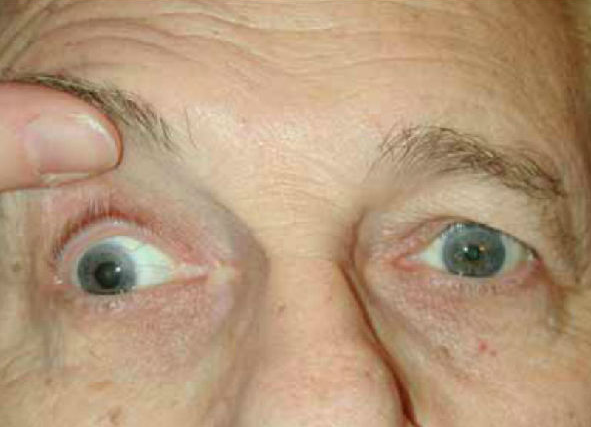
We’ve all been there. A tiny, fluttering sensation in the upper or lower eyelid, a random, involuntary spasm that comes out of nowhere. It’s annoying, but for most of us, it’s a temporary guest, disappearing as mysteriously as it arrived after a few minutes or hours.
But when this twitching decides to overstay its welcome—persisting for more than three days, sometimes for weeks—it moves from a minor nuisance to a message. This isn’t just a tired muscle; it’s a telegram from your central command. Twitching eyelids that last more than three days reveal your nervous system is overwhelmed, depleted, and operating in a state of high alert.
Medically known as myokymia, this persistent twitch is almost always benign, but it is profoundly communicative. The delicate muscles controlling your eyelids are among the smallest and most sensitive in your body, and they are often the first to protest when the system is overloaded.
Think of your nervous system as the electrical grid for a large city. A brief power flicker might be nothing. But when a specific neighborhood—in this case, your eyelid—experiences repeated, sustained brownouts, it’s a sign the entire grid is under immense strain.
Here are the primary strains causing the grid to falter.
1. The System is Electrically Depleted: The Magnesium & Electrolyte Deficit
Your nerves communicate via electrical impulses, a process that depends on a delicate balance of minerals like magnesium, potassium, and calcium. Magnesium, in particular, acts as a natural relaxant for your nerves and muscles.
- The Signal: When you’re low on these crucial electrolytes, nerve cells can become hyper-excitable and fire spontaneously. The result is a tiny, localized electrical storm in your eyelid. A twitch lasting for days is a strong indicator that your body’s mineral reserves are running low, often due to stress, sweat, caffeine, or a diet lacking in leafy greens, nuts, and bananas.
2. The System is Chronically Over-stimulated: The Caffeine & Stress Vortex
This is the most common duo behind persistent twitching. Caffeine is a stimulant that increases neuronal firing. Stress and anxiety cause your body to release hormones like cortisol and adrenaline, which put your entire nervous system on “high alert.”
- The Signal: You are essentially pouring gasoline on a spark. The combination of chemical stimulants (caffeine) and psychological stress (anxiety) creates a sustained state of hyper-arousal. Your nervous system, unable to calm down, begins to misfire at its most vulnerable points. The twitching eyelid is a literal expression of your nerves being “jumpy.”
3. The System is Exhausted: The Sleep & Rest Deficit
Sleep is when your nervous system repairs itself, resets, and clears out the metabolic waste products of the day. When you consistently short-change your sleep, you deny your neural pathways this essential maintenance.
- The Signal: The twitch is a cry for rest. An overtired brain has poorer control over motor functions, leading to small, involuntary muscle contractions. It’s your body’s way of saying the central processing unit is overheating and needs to be powered down for a proper reboot.
4. The System is Overworked: The Digital Eye Strain Factor
Staring at screens for hours on end forces the tiny muscles in and around your eyes to work overtime to focus. This constant, intense focus can lead to fatigue and spasms.
- The Signal: Your eyes are literally tired of working. The twitch is a direct result of muscular fatigue, driven by a modern-world demand that our biology hasn’t caught up with.
When to See a Doctor
While 99% of persistent eyelid twitches are harmless and stress-related, you should consult a doctor if the twitching:
- Doesn’t go away after a few weeks.
- Is strong enough to close your eye completely.
- Spreads to other parts of your face.
- Is accompanied by redness, swelling, or discharge from the eye.
For the vast majority, a twitching eyelid is not a sign of a serious neurological disorder like Parkinson’s, but rather a billboard for your lifestyle. It’s your body’s polite, yet persistent, way of asking you to drink less coffee, put down the phone, manage your stress, and finally get a good night’s sleep. By listening to this small signal, you’re not just soothing a twitch—you’re calming your entire nervous system and giving your overworked electrical grid the relief it desperately needs.